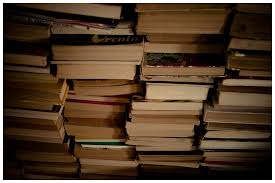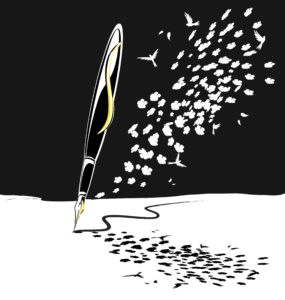
I’m giving you an archived post today, my lovelies because I’m on a family emergency
trip to the States and I won’t be able to give much attention to new posts for a little while. I promise to get back to it as soon as I can. In the meantime enjoy.
When I read as a writer, what I read — no matter what it is — but especially if it’s fiction, becomes a whole different animal. I realized this after reading a particularly fabulous short story that completely enthralled me for the course of several thousand words. And when I came back to the real world, I found myself not only analyzing what made the story so amazing, but analyzing how I as a writer read it differently than I would if I weren’t a writer.
I don’t think any writer can approach a story without viewing it, at least to some degree, on the level of the writing. As I analyzed my story reading style, I realized two things. First of all, I always think back over the story after the fact and try to figure out what made it work for me or not. That process within itself can’t keep from changing the story. In a way it becomes a story of multiple plots and constructs the writer never intended, but my mind can’t keep from creating. If in my analysis there are lots of changes I would make, things I would have done differently as the author, at some point it becomes mystory, the one I’m writing in my head, and no longer the story the author intended.
For me, the big clue to how I esteem the story is the point at which I begin to analyze. If I’m analyzing the story as I read it, then it’s clearly not going to get five stars on the K D story critique scale. The sooner I begin my analysis while I’m reading, the fewer stars the story or novel rates from me, until at some point it becomes an exercise in editing and recreating it as my own story rather than reading for pleasure. When that happens, the whole process becomes a different experience than the one the writer intended.
If, however, I get totally lost in the story, then my whole internal landscape changes. The writer in me is temporarily replaced by the fascinated little girl who simply loves a good story. When I am pulled in, rough and tumble, to the world the writer has created for me, the story becomes multi-dimensional and experienced twice, sometimes thrice over, sometimes even more. When I’m in the queue at the supermarket, or in bed waiting to fall asleep, when I’m waiting for the bus, I can have the secret pleasure of reliving that story over and over.
Being pulled in is the first part of experiencing a great story. The second part, the analysis part, happens after the fact. When the story moves me, excites me, changes me, then my analysis of it is a different process. Because I don’t feel I can improve on it, analysis then becomes taking the story into myself from a write’s point of view. In other words, what is it that makes this story so fantastic, and how can I incorporate some of that fantastic -ness into my own writing?
A perfect story, a story that pulls me in and devours me whole is a lingering experience. I’m a firm believer that a good story should somehow change the reader. But a good story should also change the writer. A good story should be like discovering a view from a mountaintop that we didn’t know was there before, a view that changes everything, the waterfall we didn’t see, the storm we never expected, the castle that dominates the landscape. A really great story has the potential to make me a better writer, a better weaver of story, a better seer of nuance, a better wielder of my craft.
But a good story should change more than just my views of my writing world. It should touch and stimulate in ways I would not have expected. It should open up the landscapes in my unconscious and my imagination. In some ways, a good story acts as a Muse, and that is the pinnacle of what a writer can glean from a story. I won’t say that doesn’t happen with badly written stories as well, after all the Muse chooses her own time and place. But with a good story, somehow the appearance of the Muse seems more numinous, more dressed for the occasion.
For me, the most powerful element of any story is the key relationship and how it expresses itself. That expression is often sexual, and a well-written sex scene carries with it the weight of human emotion. It carries with it the drive to reach that magical point where two become one, where we are as close to being in the skin of ‘the other’ as it is possible to be. The power of sex and relationship in story can hardly be overstated. Even in mediocre stories, the power of love and relationship can still pull me outside of the editor-me and into the roil of the archetypal story of human need.  To me, that means we erotica writers wield one of the most powerful tools in the writing craft; sex in story. Use it poorly and it just sounds stupid and crass. But use it well and it will be the moment in the story that the reader remembers while in the queue at the grocery store, while drifting off to sleep, while waiting for the bus. And it will be remembered with that ache of commonality of all humanity, the driving force within us all. Keeping that in mind, I don’t think it’s any wonder that so many writers fear writing sex.
To me, that means we erotica writers wield one of the most powerful tools in the writing craft; sex in story. Use it poorly and it just sounds stupid and crass. But use it well and it will be the moment in the story that the reader remembers while in the queue at the grocery store, while drifting off to sleep, while waiting for the bus. And it will be remembered with that ache of commonality of all humanity, the driving force within us all. Keeping that in mind, I don’t think it’s any wonder that so many writers fear writing sex.